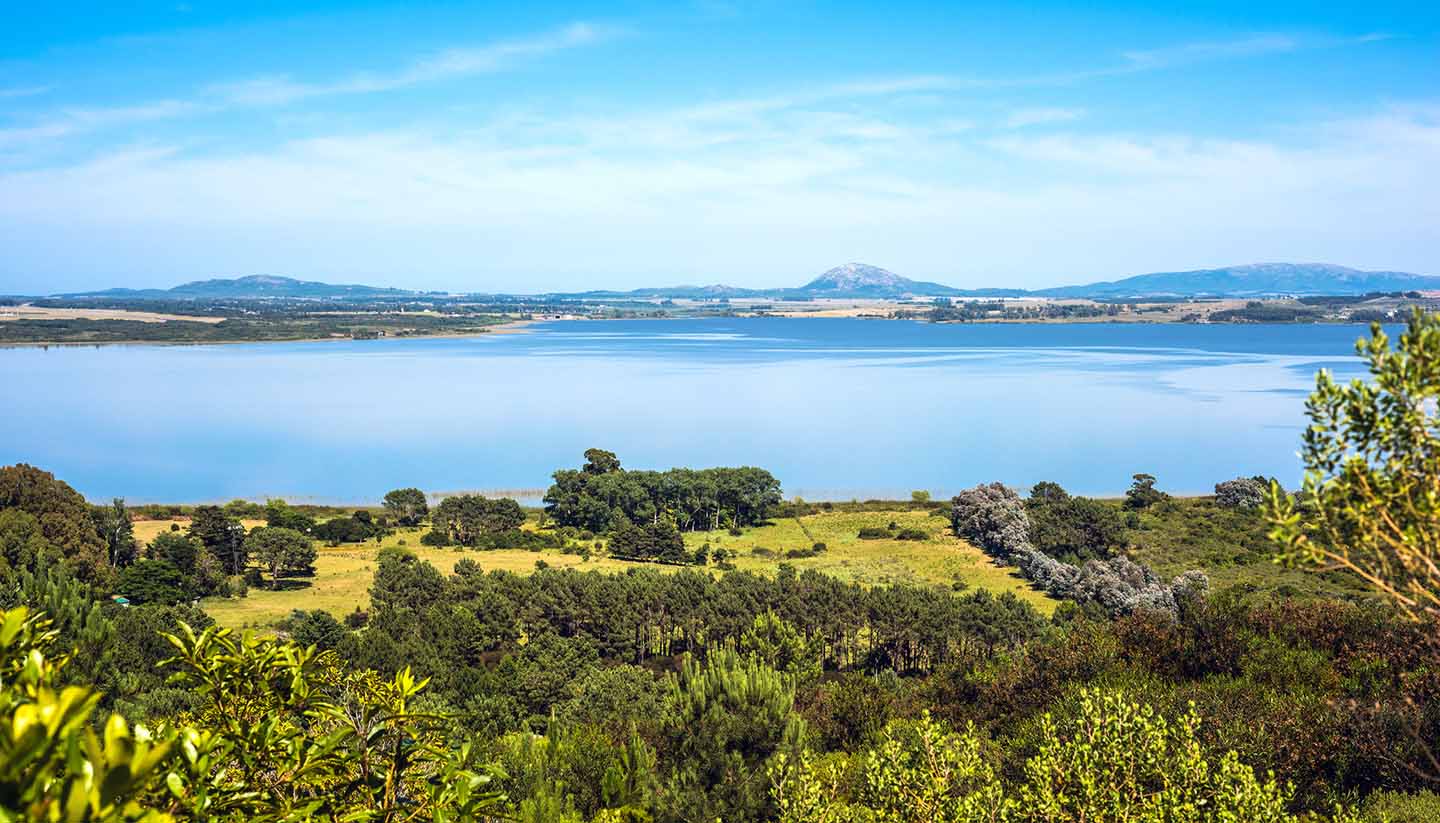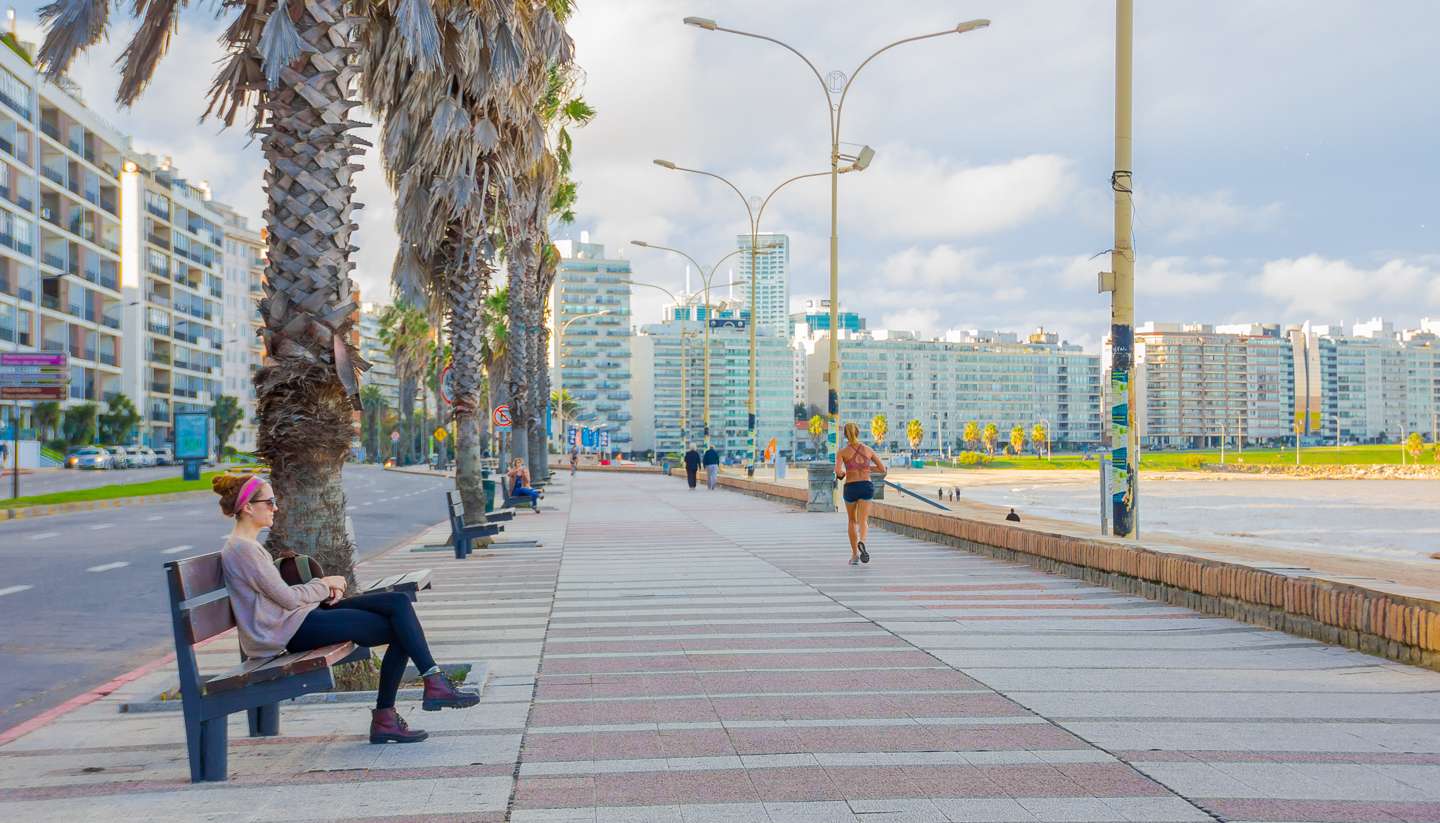Uruguay: Doing business and staying in touch
Doing Business in Uruguay
Uruguayans pride themselves on being very European in attitude and conduct business accordingly. While timing of social engagements is flexible at best, business meetings here start promptly at the agreed time. While European-style cheek-kissing is the norm for greetings between friends (even males), business associates shake hands.
Businessmen should wear conservative suits and ties. As far as communication is concerned, some knowledge of Spanish will prove invaluable, although English may be spoken by many in business and tourist circles. Business cards are essential and it would be an advantage to have the reverse printed in Spanish. Avoid visits during Carnival week or Easter week.
Office Hours
Business hours tend to be Monday to Friday, 0900-1700. Some businesses open until noon on Saturday. Closing for the long midday siesta was once commonly practiced, but is now generally viewed as a thing of the past.
Economy
Uruguay is one of the more prosperous Latin American countries. The economy has a traditionally strong agricultural sector, with beef and wool being the most important products; dairy exports to other Latin American countries are substantial. Crop farming is widespread, producing mostly cereals, rice, fruit and vegetables.
Manufacturing is concentrated in oil and coal-derived products, chemicals, textiles, transport equipment and leather products. The oil and coal, both for manufacturing and energy consumption (the latter supplemented by Uruguay's own hydroelectricity stations), are imported. Mining is confined to small-scale extraction of building materials, industrial minerals and some gold. The tourism industry brings in just under US$1 billion annually.
Uruguay's economic health depends heavily on that of its two large neighbours, Argentina and Brazil. In August 2002, both Argentina and, to a lesser extent, Brazil were gripped by financial crises. This led to a collapse in the cross-border trade upon which Uruguay is heavily dependent.
The government was forced to take emergency measures in the form of currency devaluation, loan rescheduling and, in an unusually drastic move, closing down the country's entire financial system as it approached meltdown. It also appealed for support from the IMF, which responded with a US$3 billion package. With the worst of the crisis past, Uruguay is now returning to something approaching economic health. Annual growth was at 2.8% in 2015, while inflation in the same year was at approximately 7.9%.
Uruguay is a member of Mercosur, the principal regional trade bloc, as well as the Asociación Latinoamericana de Integración (ALADI) and the Inter-American Development Bank.
GDP
US$53.4billion (2015).
Main exports
Beef, wool, leather products, cellulose and rice.
Main imports
Machinery, chemicals, fuel, vehicles and cellular phones.
Main trading partners
Brazil, Argentina, USA and China.
Keeping in Touch in Uruguay
Telephone
The local telephone service Antel, which is operated by the government, is good and operates call centres in all major towns (www.antel.com.uy). There are also numerous locutorios (privately run call centres). Public phone boxes require a prepaid card, available in denominations of $U25 to $U400 from Antel call centres and newspaper kiosks. Skype calls can be made from most internet cafés and are generally the cheapest way to call home.
Mobile Phone
Antel, Movistar and Claro are the three principal network operators. All three have stores throughout Uruguay. Mobiles operate on the standard GSM cellular network.
Roaming agreements exist with some international mobile phone operators. Visitors should check with their service provider before travelling. Mobile phones and SIM cards can also be easily obtained locally and are usually a less expensive option, especially for longer stays. Coverage is good in urban areas and patchy elsewhere.
Internet
There are internet cafés in main urban areas. Connections are good and prices reasonable (around US$1 per hour).
Media
The Uruguayan constitution guarantees a free press and freedom of speech. There are dozens of private newspapers, radio stations and TV channels. Leading Uruguayan TV broadcasters include Canal 10, Montecarlo and Teledoce. State-run radio and television broadcasts are operated by SODRE. International cable channels are also available, especially at better hotels in Montevideo. Domestic English-language news sources are limited to the internet, but UK and other international papers can be purchased at some Montevideo newsstands.
Post
Airmail to Europe takes three to five days.
Post Office hours0800-1800 (main post office in the old city, Montevideo: 0900-1900).



